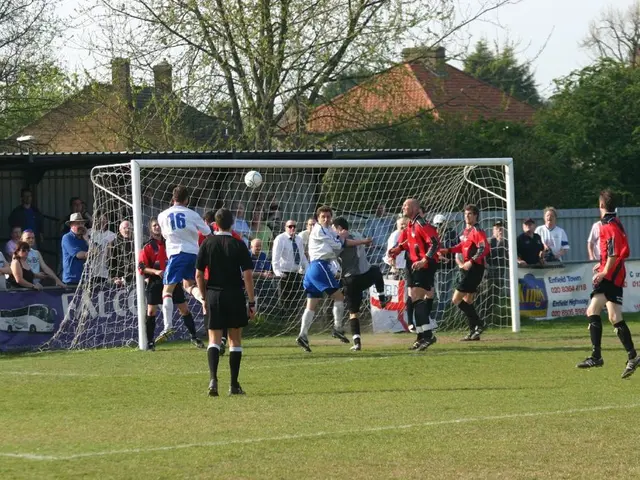Controversial Hate Crimes Bill Proposed by Carney Administration Sparks Debate on Implementation and Freedom of Assembly
Canadian Government Tables Bill C-9 to Combat Hate Crimes and Intimidation
The Canadian government has tabled a new legislation, Bill C-9, aimed at combating hate crimes, intimidation, and hate speech. This move comes amidst tensions and protests over Israel's war in Gaza.
The proposed bill defines hate in the Criminal Code and makes hate-motivated crime and intimidation specific offenses. It also criminalizes the display of symbols of government-designated terror groups, as well as Nazi imagery, for the purpose of willfully promoting hatred or intimidation.
However, the bill does not specify what constitutes intimidation, leaving it to an 'extremely fact-dependent analysis.' This ambiguity has raised concerns among some critics who fear that it might stigmatize protest and deter people from expressing dissent.
Assistant Deputy Attorney General, Fraser, has acknowledged the learning curve associated with the adoption of these new laws. Fraser has promised to work alongside provincial counterparts and law enforcement to ensure they have the necessary tools. Yet, Fraser has not specified any potential consequences for violating the bill's provisions regarding terror symbols and intimidation.
Rob Dhanu, a lawyer and former B.C. prosecutor, has questioned the need for the bill. Dhanu argues that there are already laws against mischief and intimidation, and proving 'willful promotion of hatred' when someone is displaying a terror symbol may require hate speech that would already be illegal under Canadian law.
Dhanu has also expressed concerns about the bill's provisions regarding places of worship, schools, community centers, and other places primarily used by identifiable groups. He fears that the proposed law might intimidate or obstruct people from accessing these places, potentially infringing on the freedom of expression.
The bill allows police to lay hate-crimes and intimidation charges without the attorney general's consent. This provision has raised concerns among some critics who fear that it might wrongly lower the bar for charges against speech, even if it removes bottlenecks when combating hate crimes and intimidation.
The legislation was immediately praised by major Jewish groups, but met with mixed reactions from others, including lawyers, pro-Palestinian groups, and Canada's biggest Muslim advocacy organization. Anais Bussieres McNicoll, the director of the Fundamental Freedoms Program at the Canadian Civil Liberties Association, has expressed concerns that the bill's provisions might stigmatize protest and deter people from expressing dissent.
On the other hand, Dhanu described the bill as a 'Band-Aid solution' to what he considers to be 'serious societal hemorrhaging.' He suggests working on addressing the root causes of hate crimes and intimidation rather than focusing on symptoms.
The proposed law aims to criminalize intimidating or obstructing people from accessing the mentioned places, responding to a rise in crimes targeting Jewish and Muslim Canadians. However, the debate surrounding Bill C-9 continues, with critics expressing concerns about its impact on freedom of expression, while supporters argue for the need to combat hate crimes and intimidation more effectively.
Read also:
- United States tariffs pose a threat to India, necessitating the recruitment of adept negotiators or strategists, similar to those who had influenced Trump's decisions.
- Weekly happenings in the German Federal Parliament (Bundestag)
- Southwest region's most popular posts, accompanied by an inquiry:
- Discussion between Putin and Trump in Alaska could potentially overshadow Ukraine's concerns








